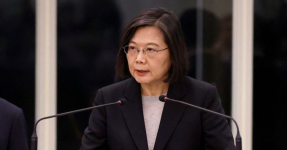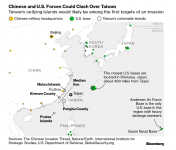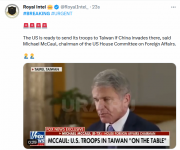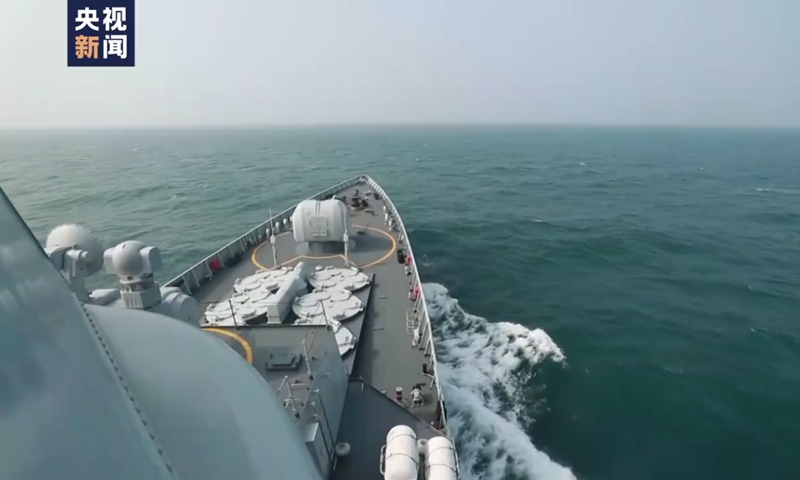jward
passin' thru
Taiwan’s president is in the Americas — and China’s not happy
Ellen Ioanes
Taiwan’s President Tsai Ing-wen is in the midst of a 10-day trip to the Americas, with stops in Belize, Guatemala, and the US as the island faces an increasingly belligerent Beijing. Tsai’s trip underscores Taiwan’s vulnerable position as its international allies face a pressure campaign from the People’s Republic of China to switch diplomatic ties from Taiwan to the mainland.
Beijing has threatened conflict over Taiwan, which according to its “one China principle” is part of the mainland, for decades. The tension most recently reached a fever pitch when former Speaker of the House Nancy Pelosi visited Taiwan in August of last year. At the time, Beijing retaliated by sanctioning Pelosi and firing ballistic missiles toward Taiwan, as well as announcing it would extend planned military drills. Now, with Tsai headed to the Americas to shore up support for Taiwan, Beijing has threatened “resolute countermeasures” should Tsai meet with current Speaker Kevin McCarthy next week, as she’s tentatively planned to do.
Just as existential for Tsai, though, may be her scheduled visits to Belize and Guatemala, particularly given the fact that Honduras, a former diplomatic partner, recently changed its allegiance to Beijing. Though the US is Taiwan’s most powerful friend and security partner, the US government walks a fine line where the island is concerned. Officially, the US recognizes the People’s Republic of China and respects what it calls the “one China policy,” but practices strategic ambiguity where the two are concerned.
Taiwan itself is in a difficult position, too, as its official number of diplomatic partners dwindles from 14 to 13. Tsai’s visit to Belize and Guatemala will reinforce those countries’ commercial, diplomatic, and military commitments to Taiwan. But China has a tactic of using its relative economic might as a cudgel, typically by persuading poorer nations into infrastructure and lending deals that later make them economically beholden to Beijing. Honduras’s decision to switch allegiance may have had an economic payoff for the Central American nation, Taiwanese Foreign Minister Joseph Wu alleged.
Five Central American and Caribbean nations have switched their diplomatic ties from Taiwan to Beijing since Tsai took power, and it isn’t clear that diplomacy can stanch the bleeding. And in regard to Tsai’s US visit, Beijing has warned that it’s watching the situation closely should Tsai meet with US officials.
What Tsai’s Central American visit can do for Taiwan
Though Tsai will bookend her trip with stops in the US — she started off in New York and plans to visit McCarthy in his California district before heading back to Taiwan — her Central American stops are critical too, Kitsch Liao, assistant director of the Atlantic Council’s Global China Hub told Vox in an interview.Much of Taiwan’s national security is connected to the threat from China, which can be dealt with in two different ways — cross-strait relations or international diplomatic relations. “Cross-strait doesn’t work if China doesn’t want to play with you,” Liao said, and China is not particularly disposed to work with Tsai’s Democratic Progressive Party (DPP). Therefore, international support and diplomatic engagement, whether with official partners like Belize and Guatemala or powerful security partners like the US, does play an important security and intermediary role for Taiwan.
From a purely military perspective, Taiwan’s allegiances aren’t terribly strategic, but Taiwan does have priorities other than defense, like trade. Taiwan has a strong trade relationship with Guatemala and has invested millions in the Central American country’s agricultural, manufacturing, and tech industries, and Taiwan’s ties with the Marshall Islands in the Pacific are crucial for its fishing industry.
Of course, there’s also the symbolic importance of having official diplomatic relationships — they give credence to Taiwan’s sovereignty, a threatening concept for Beijing. That’s why, since Tsai became president in 2016, Panama, Nicaragua, and El Salvador in Central America, São Tomé and Príncipe and Burkina Faso in Africa, the Dominican Republic in the Caribbean, and the Solomon Islands and Kiribati in Oceania, have all broken ties with Taiwan in favor of Beijing, many citing economic concerns for the switch, the Washington Post reported Wednesday.
Honduras, the most recent country to shift its allegiance to China, has been dealing with economic insecurity, including $600 million the country reportedly owed to Taiwan. China has made a concerted effort to isolate Taiwan, relying on the economic coercion it practices elsewhere — providing loans or support for infrastructure projects, only to exert more influence or take over those projects when the recipients of its largesse can’t pay China back or complete the planned construction.
“I expect that to continue,” Derek Grossman, a senior defense analyst at the RAND Corporation, said of China’s campaign to peel off Taiwan’s allies.
Another method of influence is the so-called “golden passport” programs in certain Caribbean nations, according to the research of Leland Lazarus, associate director of the national security policy program at Florida International University’s Jack D. Gordon Institute for Public Policy. In a recent report, Lazarus found that some Caribbean nations’ citizenship programs for foreign investors see a large percentage of Chinese applicants, who then wield political influence in those countries. In St. Kitts and Nevis, a diplomatic partner of Taiwan, an estimated 60 percent of applicants to the citizenship program were from China.
Since Honduras’s defection, Taiwan’s three Latin American partners — Paraguay, Guatemala, and Belize — have all reaffirmed their support for Taiwan, touting shared democratic ideals. Guatemala and Belize both reaffirmed their position that Taiwan is a sovereign nation.
Of course, there is an argument that Taiwan should work on cultivating relationships with powerful security partners like the US, according to Grossman. “Taiwan shouldn’t worry about the Hondurases of the world,” Grossman told Vox in an interview, but rather “focus on powers including Australia, Japan, even the Philippines,” nearby nations that could provide military support in the case of an attack by China, especially if for some reason the US weren’t in a position to or were unwilling to come to Taiwan’s aid.
“Time is not on Taiwan’s side here,” Grossman said.
China is unpredictable, but the context of Tsai’s visit is important
The US plays a peculiar role in Taiwan’s existence; though Washington officially recognizes Beijing, the US is also Taiwan’s most important security partner. In many senses, it plays both sides, but perhaps most importantly, Liao told Vox, the US not only engages in deterrence against China, but it also must keep Taiwan from formally declaring sovereignty and igniting a major conflict.Taiwan’s internal politics and public opinion currently favor independence, as do Tsai and the DPP. But that’s not always been the case, and the rival Kuomintang, or KMT party, favors more conciliatory relations with China. Taiwan will hold elections next year, and as of now the DPP and KMT are in a dead heat in opinion polls, according to the Economist. Still, 61 percent of people polled consider themselves Taiwanese — not Taiwanese and Chinese. That’s a sentiment the DPP must harness in order to remain in power next year.
A visit to the Ronald Reagan Presidential Library in California is on the schedule for April 5 — Tsai will meet McCarthy there, according to the Washington Post. She reportedly met top House Democrat Hakeem Jeffries during her visit to New York, Punchbowl news reported at the time.
The fact that the visits are occurring on US soil as opposed to in Taiwan is relevant; McCarthy reportedly initially planned to travel to Taiwan to meet Tsai, as his predecessor Pelosi had done to China’s great chagrin. Tsai isn’t traveling to Washington, DC, and her visit isn’t an official state visit. From Washington’s perspective, she’s transiting through the US as she’s done before during international travel.
China has vowed retaliation should Tsai and McCarthy follow through on their meeting, although it’s not clear what that retaliation would look like should it occur. For their part, neither Grossman nor Liao is convinced that Beijing will launch an all-out attack on Taiwan, or even respond as strongly as it did after Pelosi’s visit. Still, it’s impossible to know what the calculus is in Beijing, especially when factoring in internal jockeying for influence and power, as well as public opinion.
China, Grossman told Vox, continues its belligerent behavior “because they think they can,” without considering whether it makes sense. “They operate on a hair trigger,” he acknowledged, but “I don’t think this is the moment” for a major offensive, primarily because the People’s Liberation Army isn’t prepared for an amphibious assault on Taiwan.
Beijing subscribes to an “escalate to de-escalate” strategy, increasingly showing its might in hopes that it can force an adversary to back down or at least engage in negotiation. But with US-China relations at a historic low, particularly in the military arena, there’s no path for de-escalation — increasing, as Liao said, “the chance for miscalculation and miscommunication.”

Taiwan’s president is in the Americas — and China’s not happy
President Tsai Ing-wen is shoring up allies, but a meeting with Speaker Kevin McCarthy is drawing threats from Beijing.
 www.vox.com
www.vox.com

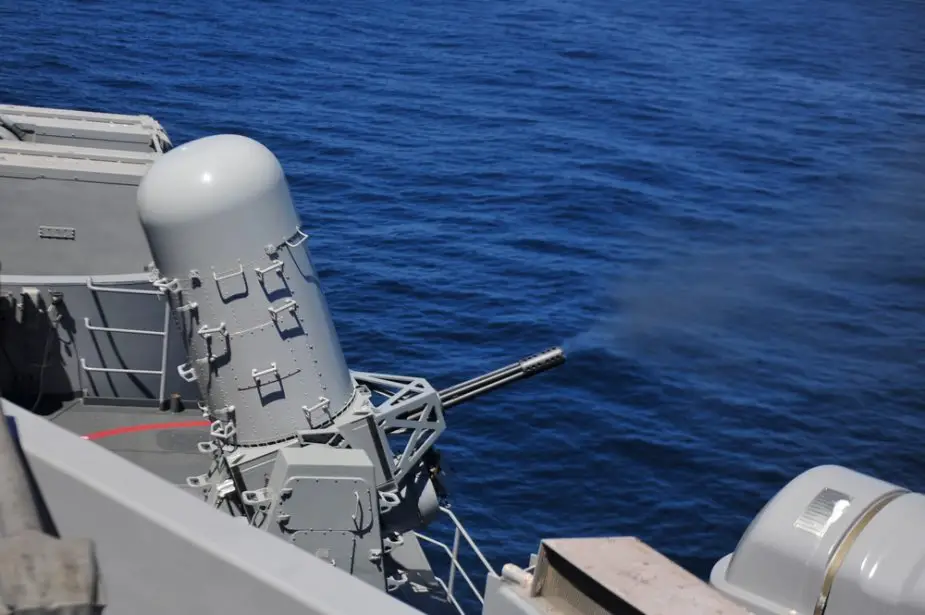


 What's China going to do, send a intel balloon and gather real time info on our most secure sites?America would never allow such an intrusion to happen.
What's China going to do, send a intel balloon and gather real time info on our most secure sites?America would never allow such an intrusion to happen.


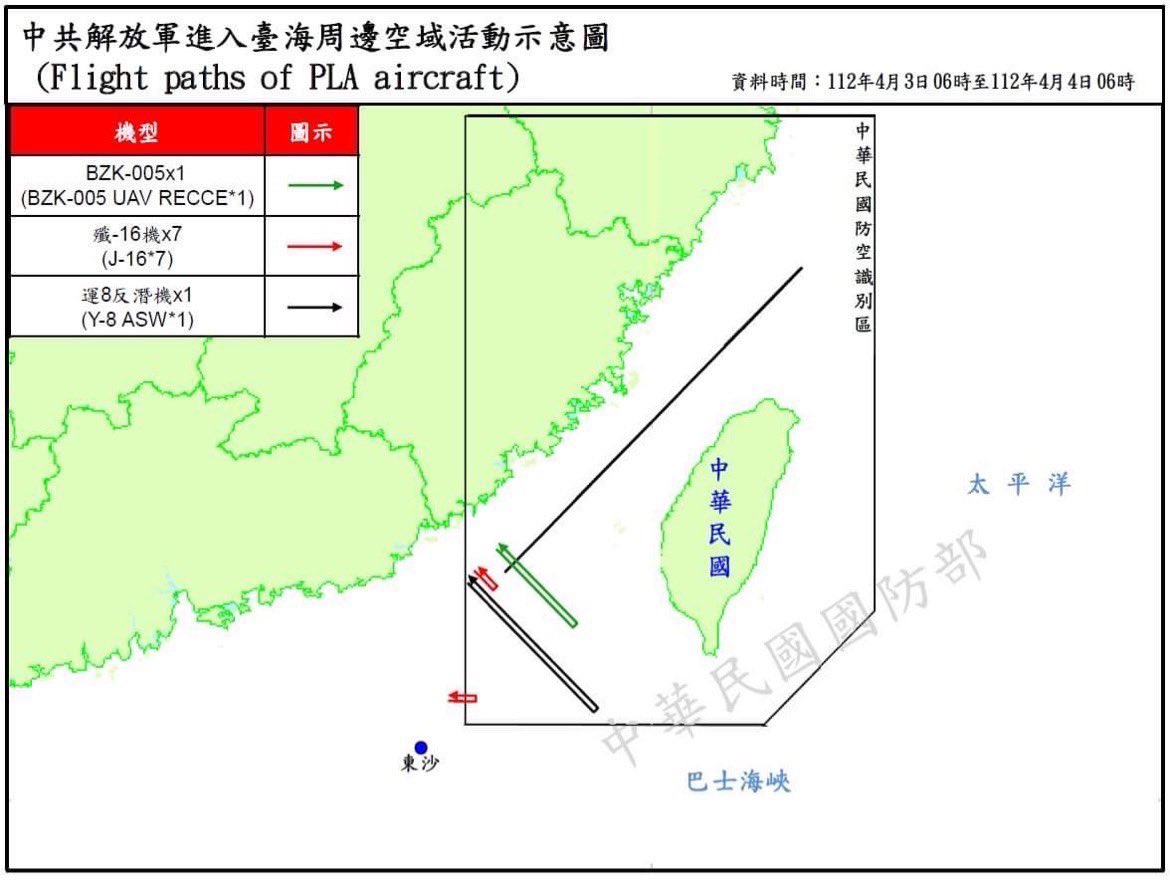
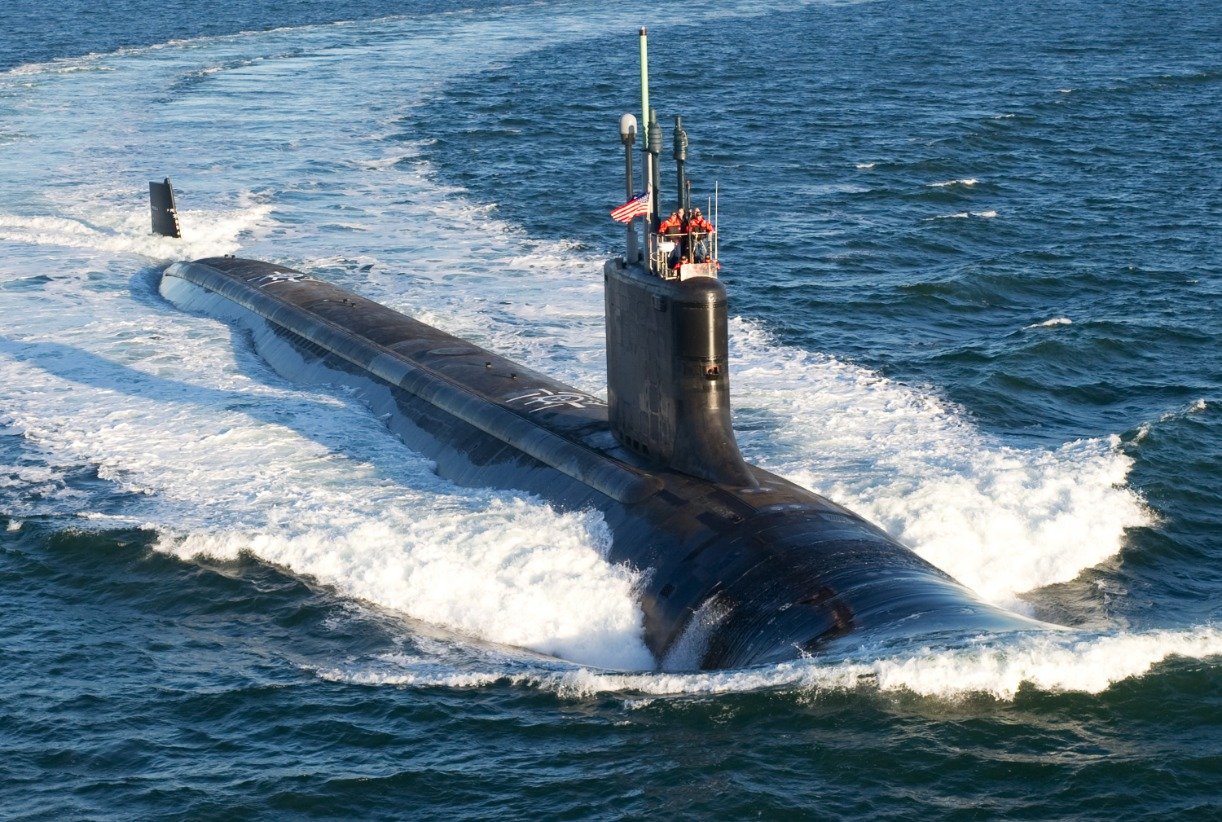

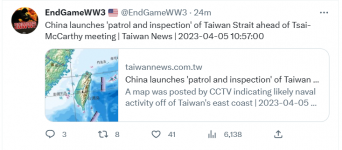
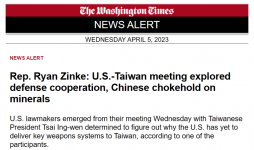
/cloudfront-us-east-2.images.arcpublishing.com/reuters/GANHRPL4K5JANEISKNFV6PHBKM.jpg)



